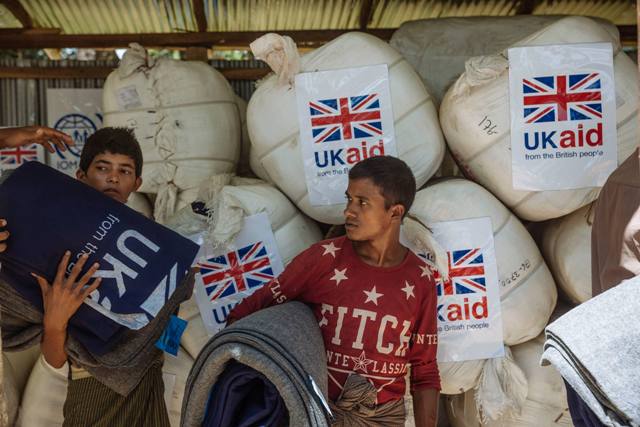
[This article appears in the latest edition of The Round Table: The Commonwealth Journal of International Affairs. Opinion pieces do not reflect the position of the Round Table Editorial Board.]
The decision to fold the UK’s Department for International Development (DFID) into the Foreign and Commonwealth Office (FCO) looks like a piece of wanton institutional vandalism. I was the last head of the Overseas Development Administration when it was part of the FCO, and the first head of DFID when it was established as an independent Department in 1997, so I can say that with some authority. It is hard to see how destroying one of the few remaining internationally admired instruments of British soft power, alongside the Commonwealth itself, is going to help bring coherence to the 3D’s of the much-vaunted Global Britain: Defence, Development and Diplomacy. The Government appears to have sacrificed what the OECD once described as the best development agency in the world in fruitless pursuit of short term political and commercial self-interest. Accountability will be weakened, specialist skills and systems will be lost, poor people in developing countries will suffer and a DFID-shaped hole will be exposed to Chinese influence-peddlers and Russian mischief-makers.
But the decision has been taken. So the debate must now shift to how to maintain an effective British development assistance programme under this new arrangement. The development community is busily drawing up lists of red lines – many of them already crossed. And indeed there is only a short time between now and the autumn, when the merger will take effect, to sort out some knotty problems. These include the spectacular muddle likely to arise from having DFID’s large and experienced team in developing countries reporting back to London through the thinly staffed local Embassies and High Commissions. Or how to integrate DFID’s cadre of home and locally engaged civil servants into the Foreign Service.
Leave all that to officials: it’s too difficult and too detailed for politicians. What the British Government has to decide now is how to maintain the three planks on which DFID’s effectiveness has rested: our development voice, the aid programme itself, and the way it’s held to account.
DFID isn’t just about aid: it’s about the development of stable and prosperous partners. If we care about helping failed states so they don’t become sources of terrorism and uncontrolled migration, if we care about reducing emissions which threaten our climate, if we care about tackling the grotesque inequalities deriving from corrupt leaders ripping off state assets, then that development voice must be heard, and heard at Cabinet level. It must be heard before we have to pick up the pieces after conflict. It must be heard when we are contemplating arms sales, or investment in coal, or cosying up to an oligarch promising investment. It must be heard when international rules are developed on money laundering, deforestation, financial transparency, pandemic reporting.
The Government can also reduce the damage done by taking an early opportunity to reaffirm its commitment to devoting 0.7% of our national income to the aid programme, and to spending it largely in poor countries. That will be harder without DFID’s professionalism; but an outward-looking, globally focussed Britain should be proud of it.
And the Government must maintain accountability, which is critical to ensuring that the taxpayer’s money secures value for a proper purpose, and to fingering someone to take responsibility if it isn’t. DFID takes evidence-based decisions – based on well-established systems operated by highly professional staff. Over the years these systems have proved robust in the face of short-term political and commercial pressures. They should be retained – and the Treasury should be ashamed of themselves if they don’t insist on it. There should be a Second Permanent Secretary responsible for that, and to defend aid-spending to the Public Accounts Committee. It should be reinforced by ensuring that the Independent Commission on Aid Effectiveness, which has regularly exposed the multiple ways in which aid-spending by Departments other than DFID can go astray, continues to report to the International Development Committee of the House of Commons.
Otherwise, somewhere along the line, this will end in tears. Tears for the many poor people whose livelihoods depend on British aid being used effectively in poor countries. And tears for the Government, who will find bad decisions ending up on the front page of the Daily Mail. Mixing aid and short-term self-interest is always a recipe for disaster. Remember Westland Helicopters? Or the Pergau Dam? I certainly do. And when that disaster strikes, expect the Opposition to place the blame firmly where it lies, on the decision to put DFID to sleep. Many of us hope they will then promise to revive, when they have the opportunity, the innovative, flexible, responsive institution that turned administering aid into promoting development, and in the process helped to halve the number of the world’s absolute poor.
John Vereker is a former Permanent Secretary of DFID.



